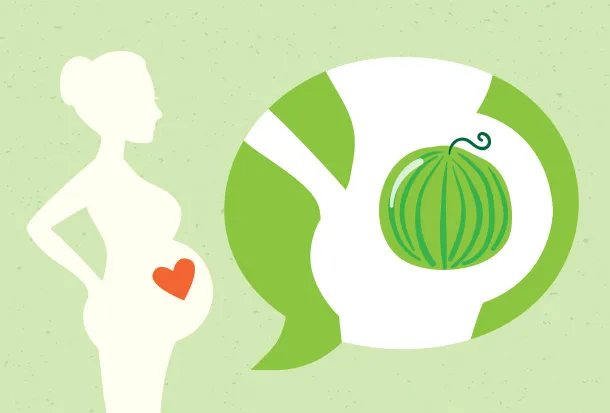The 39th week of pregnancy is the last moment that separates expectant mothers from welcoming their eagerly awaited baby into the world. It is also the last time to complete all preparations for the birth. In addition, the expectant mother begins to experience unusual symptoms.
Strange symptoms can indicate an impending birth. As long as the baby is moving and showing signs of life, this should not worry the mother. You can also talk to your doctor about your concerns.
39 weeks – Complaints in the last phase of pregnancy
In the 39th week of pregnancy, the discomfort can already be troublesome. The woman experiences contractions called pre-labour contractions (Braxton-Hicks contractions), which are often mistaken for contractions. They are quite painful because they are in the groin and middle of the abdomen. They only last for a short time. This is completely normal if you are already in the 39th week of pregnancy. A tingling sensation in the vagina, which is worrying, is also a typical symptom. The vagina stretches before the baby is born.
It is completely normal to have abdominal pain in the 39th week of pregnancy, as if you were having your period. This is caused by the pressure of the baby’s head on the pelvis. Sometimes the abdomen gets hard, but again, you should not be afraid. It is simply a sign of the impending birth.
39 weeks – baby’s movements and weight
In the 39th week of pregnancy, the baby no longer moves as violently as before. The baby is big now and does not have as much space as before. The baby’s movements are more like pulling than strong kicks. It is worth counting them.In the 39th week of pregnancy, the baby no longer moves as violently as before.
Week 39 is the stage when the baby’s brain develops. The baby can hear and has a developed sense of taste and smell. His vision is still imperfect, but he can already see shadows. In the 39th week of pregnancy, the baby’s weight is between 3200-3800 kg. It measures about 48-52 cm.
The basic examination done at this late stage of pregnancy is the ECG. It records the heart rate of the foetus and the contractions of the uterus. In some cases it is the basis for the decision to perform a caesarean section.
In the 39th week of pregnancy it is useful to discuss the birth with your midwife. This is also the last moment to decide whether stem cells should be collected from the umbilical cord blood. The expectant mother should take care of these formalities at least one week before the birth.
39 weeks – signs of childbirth
Almost every mother listens to her body so as not to miss the signs of birth. The birth phase may be preceded by unusual problems such as diarrhoea and mucous discharge. The mucus protects the cervix from infection. When it passes, it means that birth is imminent.
Shortly before birth, the mother experiences contractions. They are completely different from the contractions that precede birth. The interval between them quickly becomes shorter. At first they last only 30 seconds, but after a while they become longer and longer. They start in the upper abdomen and radiate into the perineum and groin. The expectant mother may feel pain in these areas. This is the first stage of impending labour and the time when you should go to hospital. Before the birth, it is a good idea to prepare all the necessary items and put them in one place. These are essential for both mum and baby.
The next stages may not be as slow as the previous ones, although there is no rule for this. Complete dilatation of the cervix can happen quickly, but it can also take several hours. Only when your cervix is fully dilated will you experience labour pains, which are the final stage of labour. When you push, the baby’s head comes out and then the torso. Only then will the woman be relieved.










